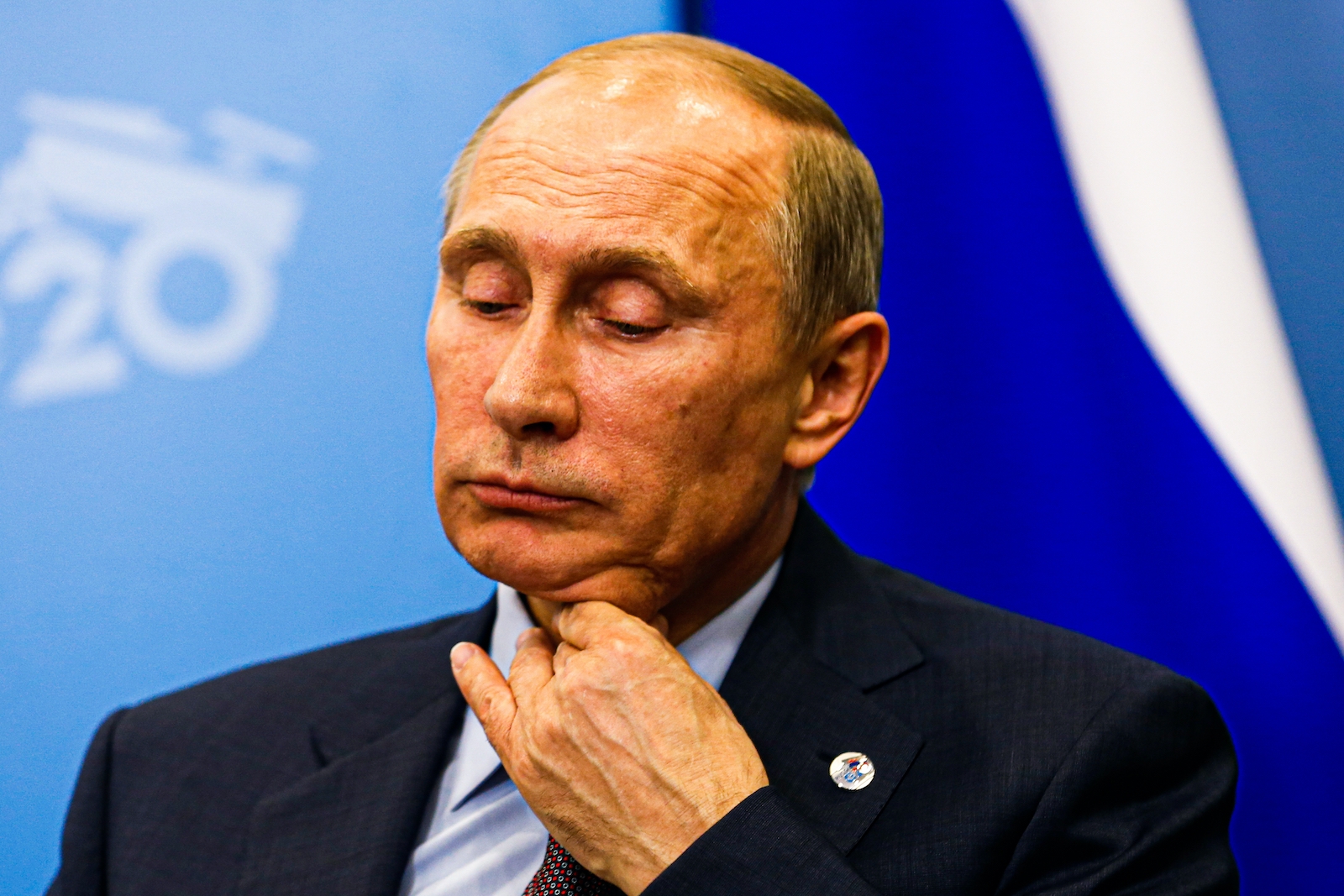
Information Warfare: Europe’s Time to Change the Narrative
Vladimir Putin receives a lot of sympathy in Europe. And not just from Russian speakers, but also from nationalists of all stripes who see him as a strong and determined individual. The same is true in his own country where his moves in Ukraine and Syria gave him a stratospheric approval rating of 89%. Seducing the masses is no easy feat, which is precisely why an army of media consultants has been tasked with supporting the Russian president. Stuck in spectator mode, the European Union finds itself unable to respond effectively.
The Russian steamroller
Vesti, Sputnik, the Internet Research Agency or Valdai are as much think tanks as media sites faithful to the Kremlin’s cause, acting like bona fide transmission belts for the Russian political elite. For example, it is thought that the Federal Security Service (FSB) uses Itar-Tass, Izvestia, and Sputnik to leak information, while Gazprom spreads material through the Echo of Moscow, a Russian radio station. But the Kremlin’s communication strategy does not simply stop at Russia’s borders. Wishing to make its voice heard abroad, Moscow has embarked on a massive project to court foreign public opinion by broadcasting content in multiple languages through its government-friendly TV networks.
This is the mission of Russia Today (RT), a news channel created in 2005 by the government agency, RIA Novosti, which broadcasts in Russian, English, Arabic, and Spanish. Claiming to be a counterpoint to one-sided Western media, RT is available to over 700 million viewers worldwide, including more than 120 million in Europe. With 1.6 million subscribers on YouTube, RT is the most followed news channel on the Internet, significantly surpassing the likes of Al Jazeera, CNN, BBC World, France 24, or Euronews.
Indeed, the Internet is the fountainhead of the Kremlin’s influence strategy. In addition to the launch of many media pure players, the Kremlin relies on the services of an armada of Internet trolls, whose main activity is to inundate the Web with pro-Putin comments and infiltrate social media and foreign news sites on an industrial scale.
For example, at the height of the Ukrainian crisis, the Guardian reported that its moderators had to deal with 40,000 pro-Kremlin comments on a daily basis.
Sadly, this crass propaganda is effective. Within the European Union, more and more citizens have come to admire Putin’s leadership. For example, 72% of French believe that Putin is an “energetic” leader, with 56% considering he “defends the interests of his country.” His striking force finds no equivalent in Europe. But, if the old continent is highly permeable to Russian propaganda – to the point that a number of European editorialists do not hesitate to take ownership and to peddle the line of the Kremlin – the reverse is not equally true.
You can count on one hand the number of Russians who approve of Europe’s foreign policy on the Ukraine issue. So far, the Union has failed to grasp the importance of developing an effective influence strategy in times of conflict, evincing a certain amateurism that only contributes to spreading the vision of a weak, divided, and dominated Europe.
The “CNN Effect” 2.0
The current Russian display of media savviness is unparalleled in its history and signals the arrival of a new form of politically charged journalism. When the Gulf War broke out in 1990, it was the United States and CNN that popularized the model of the 24/7 live news channel. At the time, the American broadcaster had the monopoly over satellite technology from which it widely benefitted as its shows were taken up by media channels all over the world.
To give its audience front row seats to the Gulf War, CNN revolutionized the concept of “embedding,” by essentially grafting journalists in combat units. “Embedding” became a way to filter the war through a pro-American point of view, which proved to be a highly effective technique for winning over international opinion. CNN consistently bombarded the viewer with the same mash-up of looped images portraying American soldiers as heroes, sparking the empathy of the audience, while leaving the “enemy” as an invisible, faceless, and voiceless presence that stirred no emotions in the viewer.
This control of the entire visual landscape would be later dubbed the “CNN effect.” Even if the method is formidable – in the US, 70% of the population supported the illegal invasion of Iraq by the order of George Bush – it does not, however, persist over time. Satellite technology is spreading rapidly and CNN’s influence has significantly waned with the establishment of each new media outlet.
If we can no longer talk about a narrowly understood CNN effect, since all countries now have access to the Internet, and even if Moscow cannot boast the same monopoly the American network had in the early 90s, the omnipresence of Russian viewpoints on the Web clearly evokes this “CNN effect.” Today, domination is not merely achieved by wielding superior technology, but through highly effective rhetorical means. If the Kremlin’s messages are so visible, it’s because they are tried and tested for maximum impact. The same thing cannot be said of the EU.
The EU in search of a narrative
The best ambassadors for the Russian media machine are not the battalions of trolls that we mentioned above, but the journalists, elected officials, and average Internet user who, having been convinced by the Kremlin’s arguments, will relay them to an ever-growing audience. It would be a mistake to assume that these spokesmen, numbering in the hundreds of thousands, have emerged by chance or are on Putin’s payroll.
In reality, they have been drawn to the Kremlin’s divisive but relatable communication strategy. Everyone can have their opinion on the substance of the Ukrainian crisis, but it’s hard not to recognize Moscow’s heightened sense of storytelling, its way of presenting the conflict, and its genesis in an original and seductive way.
European member states are all the more porous to this narrative since they offer little to nothing in terms of countering the message. In June, an EU “strategic action plan” to develop a “counter-narrative” was presented at the European Council. It was expected that this initiative would provide for the publication of pro-European key messages in articles, op-eds, and infographics in multiple languages (including Russian). What happened was that an eight-person communication team was set up, composed of members of the European External Action Service, and national experts with no budget of their own. EU officials explained their shy reaction as the Union’s desire not to engage in an info war with Russia.
However, from the outset, the focus of this fledgling communication strategy is too narrow, constricted by its sole ambition of unraveling the Russian narrative. Rather than simply trying to deconstruct the Russian influence campaign, the EU should find its own “storytelling” mechanism. Rather than playing by Moscow’s rules, Europe should start writing its own narrative, a narrative based on European values and on highlighting the EU’s place in the world as a force for human rights, rule of law, freedom, and equality. Otherwise, Europe will never develop a voice that will echo across the world.

